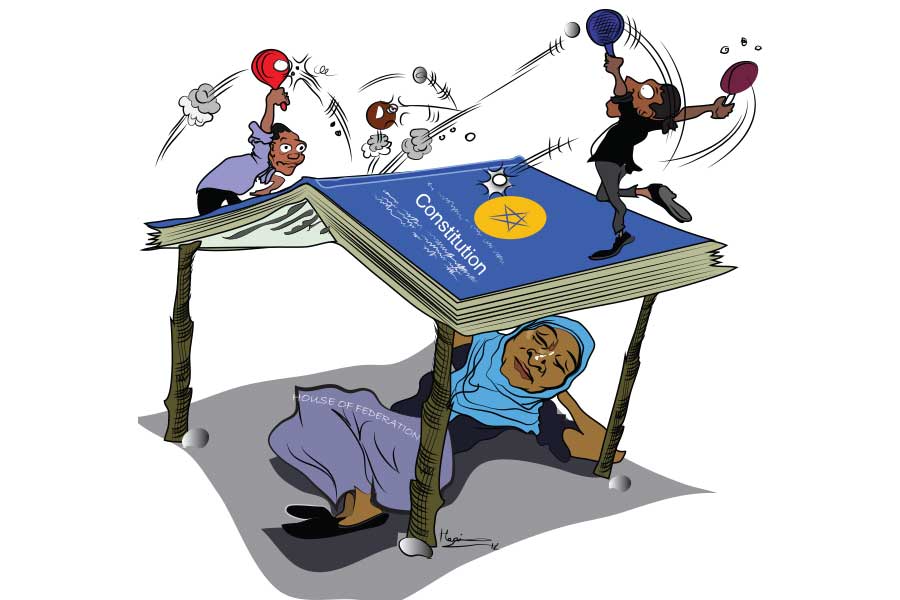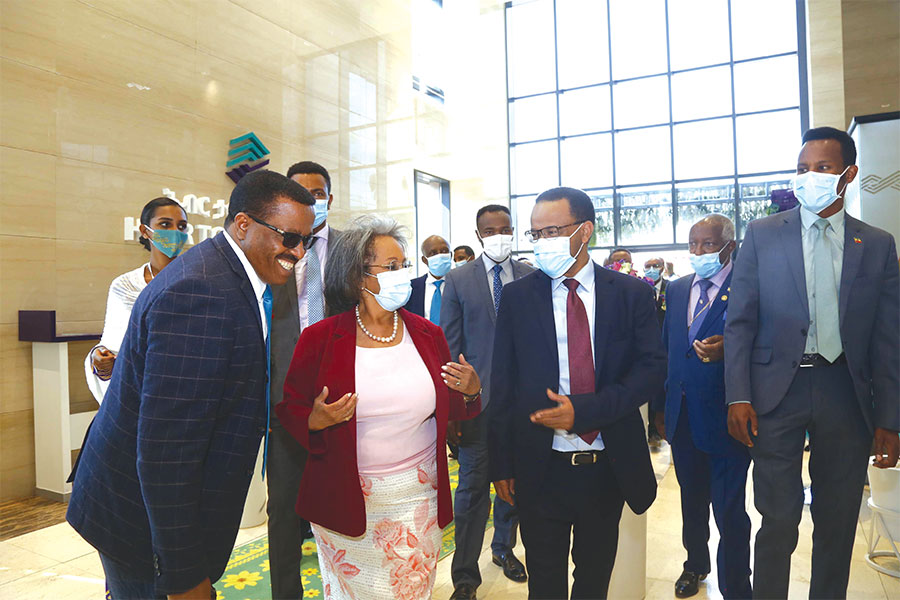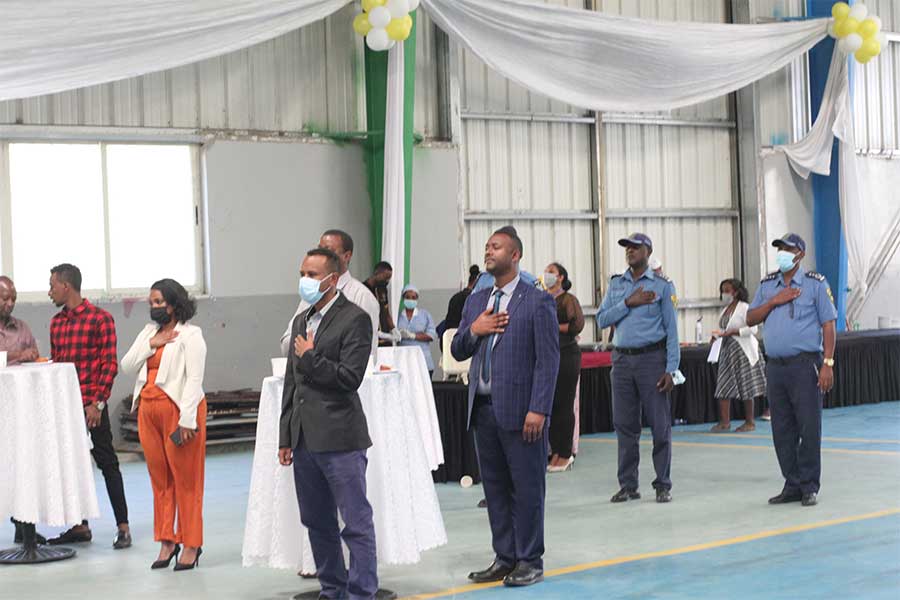
Viewpoints | Jan 15,2022
By Dawit Astatike ( FORTUNE STAFF WRITER )
Parliament elected eight MPs to chair standing committees during its Friday, November 9, 2018, session. While rejecting the nomination of two, the legislative body elected women to head half of the eight standing committees.
Moutuma Meqassa, former Minister of Defense, and Atsibeha Aregawi, nominated to chair the Foreign Relations & Peace Affairs and the Revenues, Budgeting & Finance Affairs standing committees, respectively, were rejected by parliament.
"The stand showed the importance of the parliament’s position in democratisation and reform processes, "Misrak Mekonen (PhD), head of the Parliament Office, told Fortune.
The case was similar to parliament’s deliberation on the organisation of the standing committees on November 6. After a two-hour long debate, parliament elected near unanimously to downsize the number of standing committees by half from 20 but disagreed on the nomination of Motuma and Amanuel Abraham, the deputy government whip. It also put off proposals to raise chairmanship of the committees to ministerial ranks for another session.
“Our main focus was not in what rank the chairs could serve, but whether they would be able lead the respective committees to effectively oversee the executive organs of the government," said MP Ashenafi Gaime, who was elected to lead the Urban Development, Construction & Transport Affairs Standing Committee, told Fortune.
Amanuel was also nominated and rejected to chair the Legal, Justice & Democracy Affairs Standing Committees. Instead, Fozia Amin was nominated and elected to the position with a majority vote. The remaining nominees were approved with unanimous votes.
Out of 20 standing committee chairs, four were approved despite the downsizing.
“Downsizing the number from 20 to 10 is for the effective utilisation of resources,” Tagesse Chaffo, speaker of parliament, said.
The standing committee will have subcommittees that range from 20 to 43, depending on the nature of the organs that the committees are mandated to oversee. The speaker has the mandate to place MPs in the subcommittees, which will number a total of 334 members.
Women’s, Youth & Social Affairs; Human Resources & Technology affairs and Agriculture, Pastoralist & Environmental Conservation Affairs standing committees will each have over 40 subcommittees under them.
Opposition party leaders were skeptical of the parliamentarians decisions on the standing committees.
"The idea behind strengthening standing committees to effectively account for executive organs is commendable," said Yilikal Getnet, an opposition party leader. "But nothing has changed as the parliament still seems unable to check the administrative organs of the government."
He is also suspicious of the rejection of the two nominees, claiming that it looked more personal than anything that has to do with their professional capacity.
PUBLISHED ON
[ VOL
19 , NO
968]

Viewpoints | Jan 15,2022

Radar | Jul 17,2022

Editorial | May 08,2020

Fortune News | Jan 15,2022

Radar | Nov 09,2019

Fortune News | Jun 07,2025

Fortune News | Apr 17,2020

Radar | Nov 30,2019

Fortune News | Oct 23,2021

Radar | Nov 21,2020

Dec 22 , 2024 . By TIZITA SHEWAFERAW
Charged with transforming colossal state-owned enterprises into modern and competitiv...

Aug 18 , 2024 . By AKSAH ITALO
Although predictable Yonas Zerihun's job in the ride-hailing service is not immune to...

Jul 28 , 2024 . By TIZITA SHEWAFERAW
Unhabitual, perhaps too many, Samuel Gebreyohannes, 38, used to occasionally enjoy a couple of beers at breakfast. However, he recently swit...

Jul 13 , 2024 . By AKSAH ITALO
Investors who rely on tractors, trucks, and field vehicles for commuting, transporting commodities, and f...

Jun 28 , 2025
Meseret Damtie, the assertive auditor general, has never been shy about naming names...

Jun 21 , 2025
A well-worn adage says, “Budget is not destiny, but it is direction.” Examining t...

Jun 14 , 2025
Yet again, the Horn of Africa is bracing for trouble. A region already frayed by wars...

Jun 7 , 2025
Few promises shine brighter in Addis Abeba than the pledge of a roof for every family...